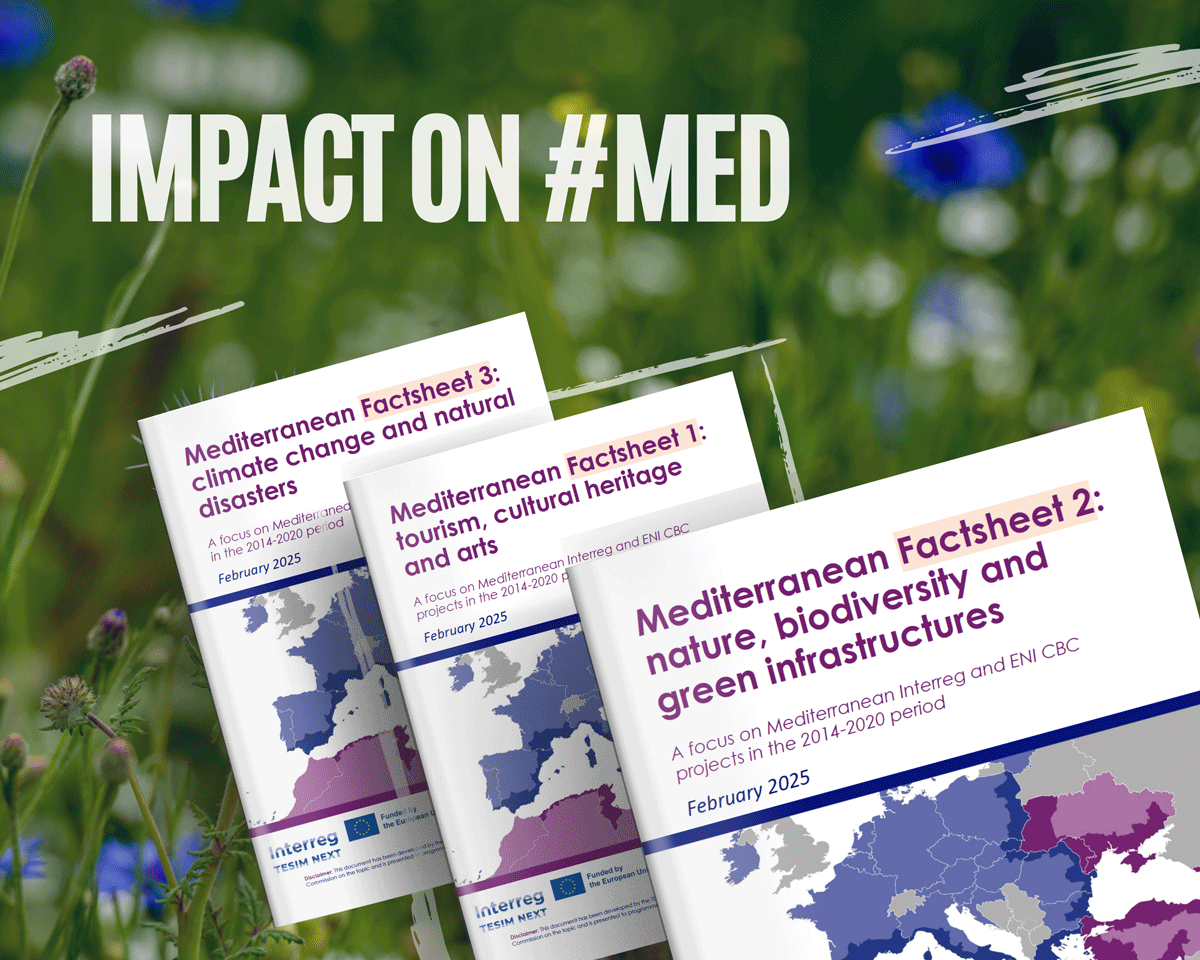A newly released report from TESIM shines a spotlight on how Interreg cooperation is helping to shape a greener, more resilient Mediterranean. The publication showcases a wide range of nature-based solutions implemented across the region — from sponge nurseries and restored wetlands to urban forests and sustainable water management systems.
With the Mediterranean warming 20% faster than the global average, the report underscores the urgency of joint action to address climate and environmental challenges. It also highlights the effectiveness of collaborative, localised solutions in protecting biodiversity, adapting to climate change, and promoting sustainable land and water use.
Between 2014 and 2020, 228 Interreg projects targeted environmental protection and biodiversity, mobilising over €411 million across 22 countries. Many of these initiatives focused on coastal and marine areas — key priorities also reflected in the Interreg Euro-MED Programme.
Looking ahead, the report confirms a strong continued commitment to green priorities, with nearly one in four projects launched under the 2021–2027 programmes focusing on environmental objectives in line with the European Green Deal.
This report is a valuable source of inspiration and knowledge for our community, offering insights into impactful practices, partnerships, and policy alignment.
It reaffirms the critical role of territorial cooperation in building a sustainable Mediterranean.


